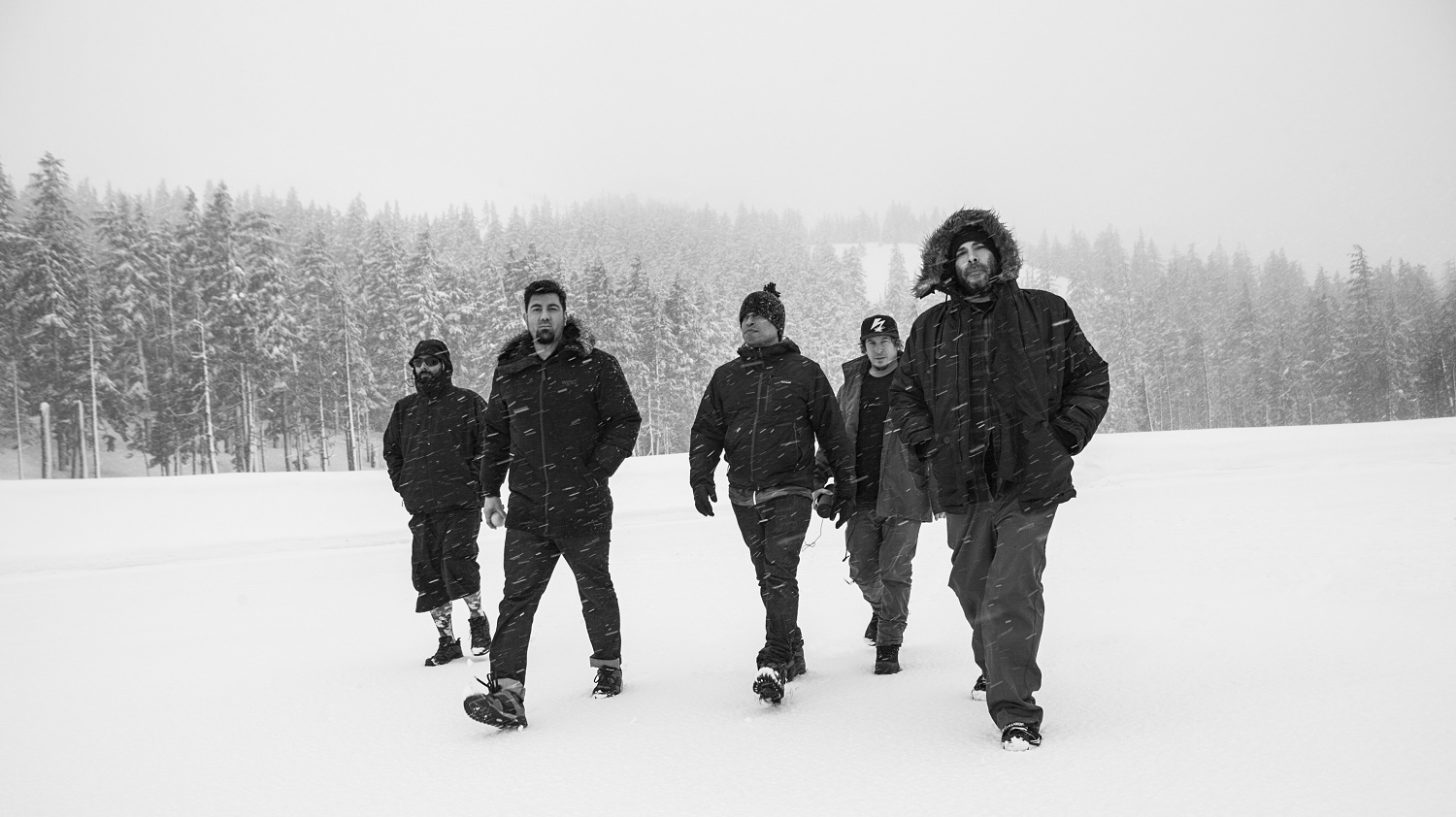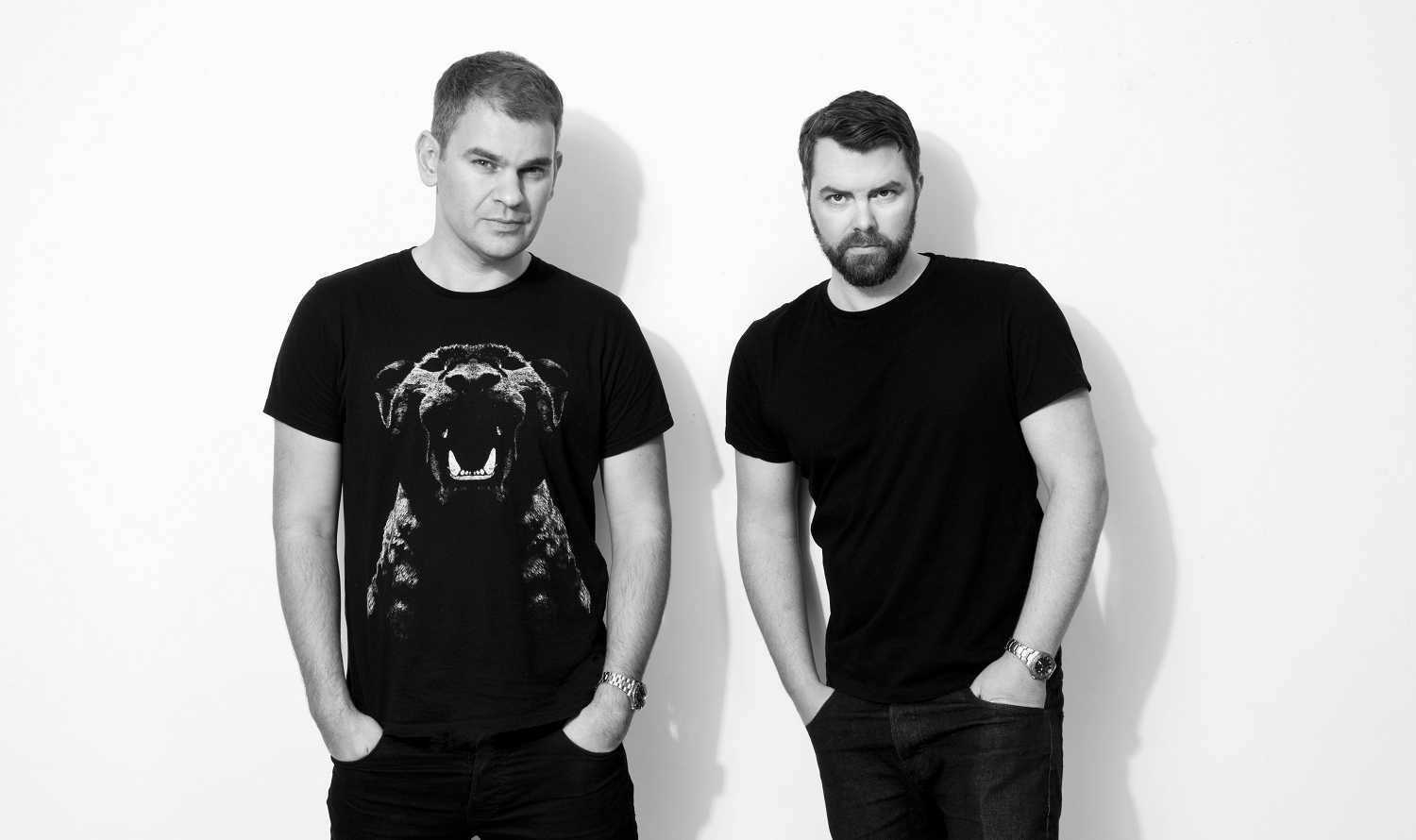Deftones bass player Sergio Vega is someone who possesses this kind of openness. Vega officially joined Deftones in 2009 after a car accident left original bassist Chi Cheng in a coma. Prior to joining, Vega had played in the New York post-hardcore band Quicksand and dabbled in solo work. He’s spent much of his adult life working as a professional musician, and open mindedness has played a vital role in preserving his enthusiasm. It’s also a beneficial quality for maintaining on-the-road endurance.
“The more you travel, the more you find the common denominator between all things, and you just have a good time,” Vega says. “The more open you are and flexible you are to people and how they go about things, the more that you can really rest on the fact that there are a lot of common needs and common goals.
“The fortunate thing about travelling is that, if you’re open, you develop empathy and you change. It’s not so much about imposing your way on things. It’s more about appreciating and learning from other peoples’ ways and approaches.”
On the subject of travel, Deftones will be down in Australia this November. They were originally slated to visit for the vetoed Soundwave 2016, but the delayed trip actually makes it better timing. Deftones’ eighth LP Gore came out in April, meaning fans will have had plenty of time to get familiar with the new material ahead of the tour. This’ll be Vega’s fourth trip to Down Under with Deftones, and anyone would think he’s vying for a job on the Australian tourism board.
“Australia’s one of my favourite places on the planet,” he says. “There’s something about the place in general and the people in general that are really open and outgoing and really unpretentious. You just want to be having a really good time. And it’s funny, because what’s not promoted in the US is how good the quality is of food and coffee. I don’t know why in the US they’re always like, ‘Outback and onions and whatever.’ Talk about the fucking espresso, talk about the quality of food.”
Deftones have a long-standing connection with Australian audiences. Gore debuted at number one on the Australian and New Zealand charts (and reached number two in the US, which hints at where their firmest fanbase lies). This chart success is especially impressive given it’s the band’s eighth album, coming nearly 30 years after their formation. Obviously they’d want success with every release, but they didn’t predict Gore would make it to number one.
“It’s phenomenal. It’s not lost upon us,” says Vega. “We have a real love for what we’re doing, and we never did it for success. We signed up for this life when we were young, but we’ve been doing it for a long time and to have a number one record in a place that we revere as much as Australia – I can’t even tell you how much it means. It’s something we never anticipated or have ever experienced in our lives. Who wants to hear someone’s eighth record? It’s amazing.”
Not many bands are able to make a substantial commercial impact this far into their career. But while hanging onto a fanbase is one thing, to be making music just as exciting as anything they’ve made previously puts Deftones in an exclusive group. Nick Cave comes to mind as another artist to also achieve this, as well as David Bowie and Radiohead. But it’s hard to find many equivalents with a similar stylistic orientation to Deftones.
“We’re aware of it, because we’re just super fans. As individuals within the band, we love so much and then we’re also looking for precedents in life. As you get older and you do things, you look around at other examples that you can follow or things that can inspire us. Then at a certain point you’re like, ‘Wow there’s really nothing to talk about.’ Who makes an eighth record that anyone cares about and that feels fresh? And we feel super energised and excited.”
To quickly summarise the stylistic nature of the record wouldn’t do it justice. Over the years Deftones have been described as progressive metal, alternative rock, art rock, shoegazer metal – the list goes on. It’s all a bit confusing, but that’s because their music has tends to conflate light and dark elements. To illustrate, Gore puts elegant vocal melodies and detailed post-rock instrumentation up against against heavy, aggressive guitar riffs and technical drum patterns. Some songs entwine the contrasting elements, while others stay aligned to a specific tone throughout. As Vega explains, the band’s characteristic dynamic scope is an outcome of keeping an open mind.
“Going back to the philosophy of travelling, it’s the same thing that we feel about art and music. We’re super open, we’re super excited, we always want to hear what people are doing. Whether or not we like the genre, whether or not we like the band, we’re really excited to hear where people are taking things and what’s happening. And it flows through us. The way that we write music is collectively and it brings together all of the diverse influences without us ever talking about it or planning it out.
“One thing that I can definitely say that I noticed early on was when a band achieves a certain level of success, they start to become self-referential and all they do is listen to themselves and they think that they’ve made it and they’ve arrived. And then next thing you know they’re no longer relevant because they’re not listening to music anymore. Then what happens after that is they feel it and they start to do whatever’s hot – they lose their centre and it just becomes so friggin’ horrible because it’s no longer channelling a true spirit. Thank goodness I’m part of a collective that just never stop listening to music. We’re open – we just don’t care. We’re fans, and that goes a long way.”
Gore had its origins in Vega and frontman Chino Moreno working on song ideas. Vega speaks with such unflappable positivity that it’s difficult to disagree with anything he says. Though, we can’t ignore the fact that Gore’s release was surrounded by details of intra-band conflict. The Deftones narrative contains many instances of conflict, specifically between Moreno and guitarist Stephen Carpenter concerning creative direction. In the case of Gore, Carpenter told Ultimate-Guitar.com that he “wasn’t too interested” in the songs being written, and that he initially “didn’t want to play on the record”. Vega gives context to these claims.
“He actually he did say that, but at the root of it was that Stephen started the band, and for him this started out as a friendship – we’re friends hanging out that happen to make music. And now we get together in these tight little increments and it’s all about work – we’re also all travelling to Los Angeles where he lives. So he’d be like, ‘Yo, slow down. Let’s have a smoke. Let’s go eat.’ We were like, ‘Hey we’re far from home. We’ve got tons of ideas. Let’s do it.’ So we had a difference of opinion about what hanging out meant. Playing together was hanging out for us, and writing was hanging out. And we discussed that and we realised that’s super important and we need to inject more time into hanging out, going to get dinner together and doing all these things.”
Once the band members had come to appreciate each other’s point of view, it stimulated the creative process. “Any of us can write a song on our own, but what we really get off on is throwing ideas at each other and seeing what fits. And if you can make a riff or part that your band mates are excited about, it’s a good feeling. [With Gore]everyone decided to make it their own and to make it better, and we’re all open to that.”
BY AUGUSTUS WELBY







